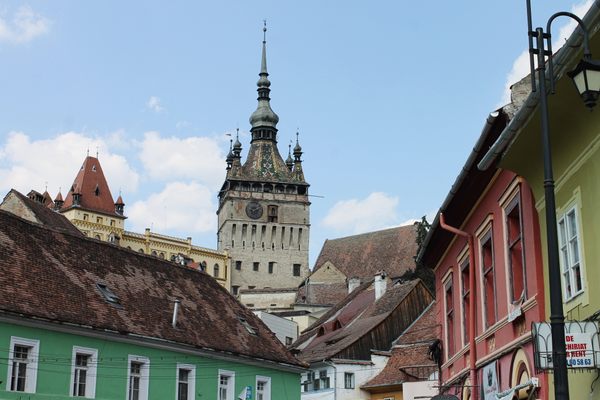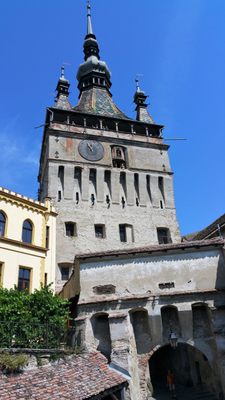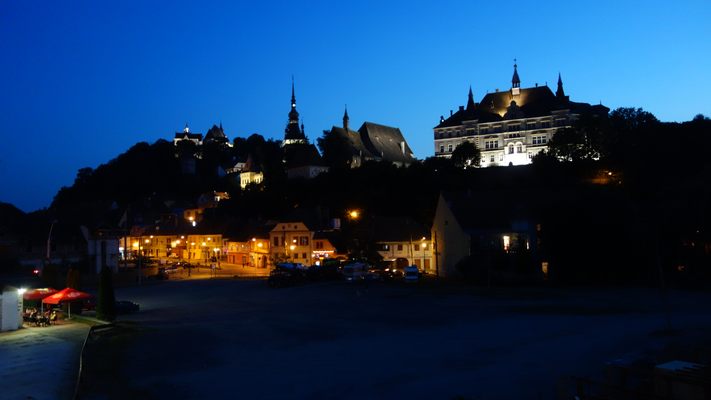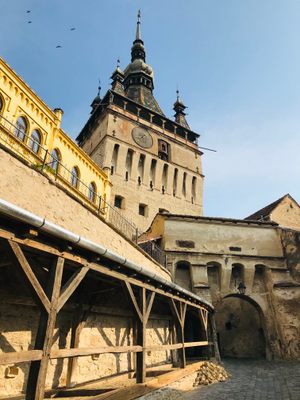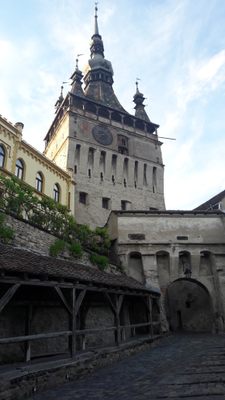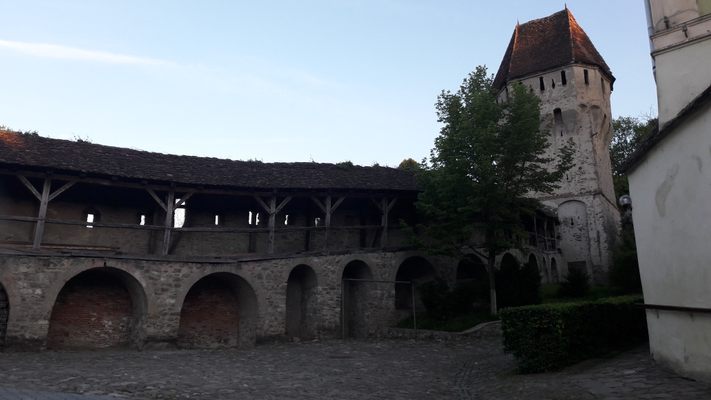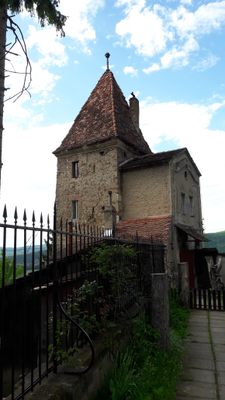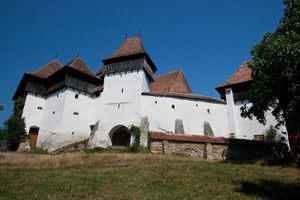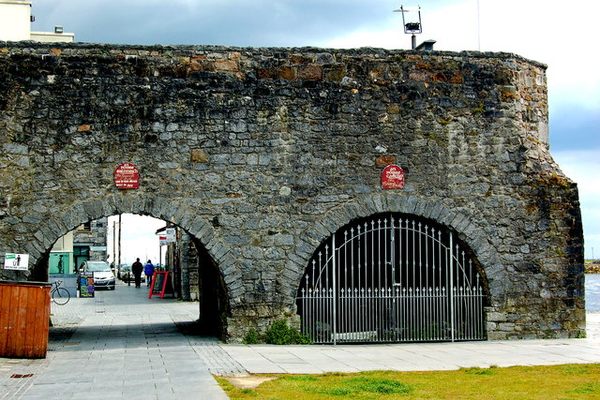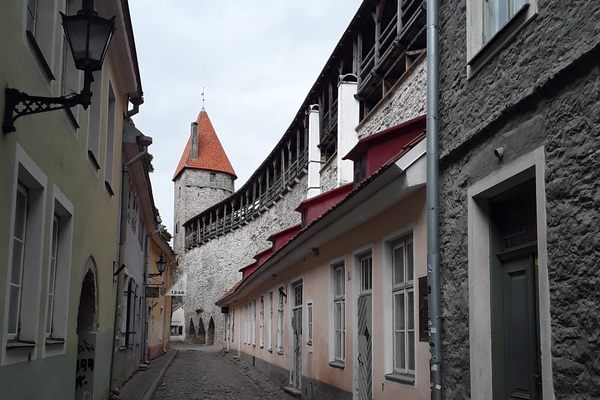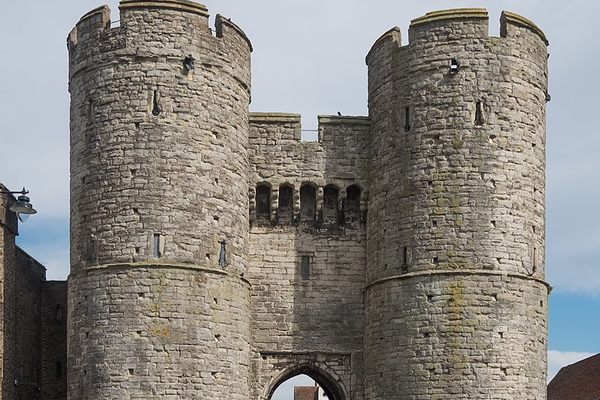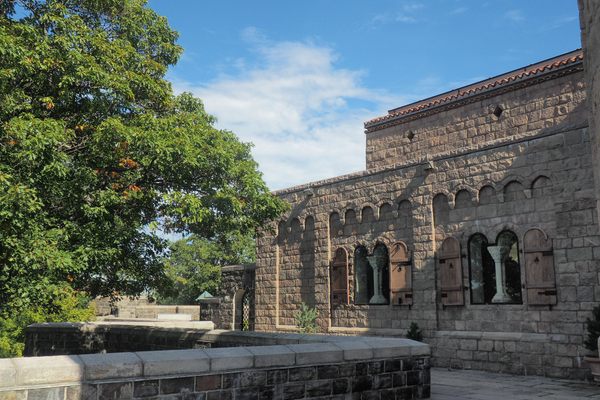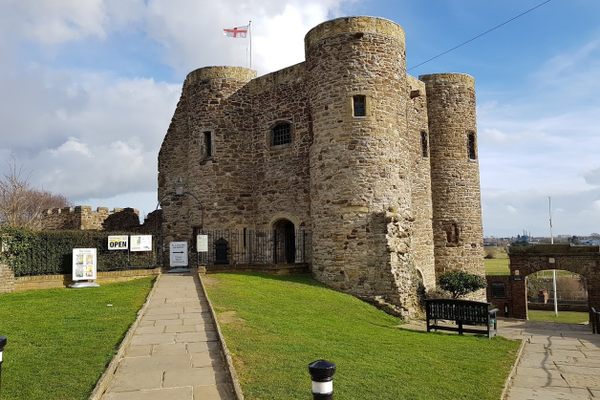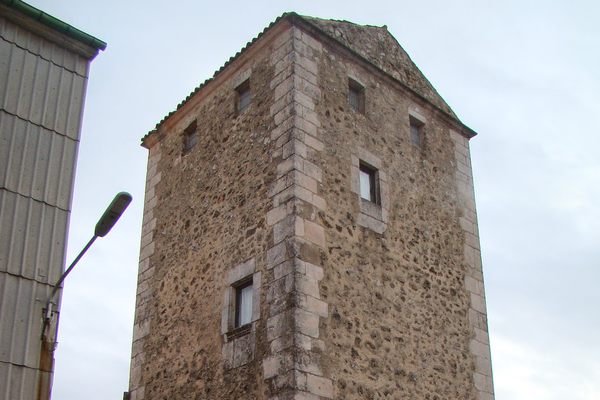About
Sighișoara (prononced sighi-shoara) is a medieval city in the center of Transylvania, modern-day Romania. It was founded in the 12th century by Saxon settlers brought in by the King of Hungary, Geza II.
Set on top a hill, the settlement was surrounded by a defense wall that was gradually upgraded with 14 towers. Each of these towers was built, manned, and maintained by the city’s 14 guilds, which included groups like the Blacksmiths, Butchers, Weavers, Rope Makers, Leather Tanners, and Tailors guilds, in exchange for commercial privileges. The towers were all designed to act as their own individual fortresses.
Amazingly, nine of the towers are still in place. The most impressive, the Clock Tower, was built in the 14th century and still guards the main entrance into the city. Two wooden drummers emerge every 15 minutes to tell the time and each hour the large bell rings. Today, the stalwart structure serves as a history museum. Its viewing balcony offers an impressive vista of the entire city.
While in Sighișoara, be sure to do more than just gaze at its mighty towers. The city holds old buildings, like the house where Vlad Țepeș (aka "The Impaler") was born in 1431, two Gothic churches, and the residence of a blacksmith that survived the devastating fire of 1676 thanks to the water well inside the house. On the other side of the hill, just outside the city walls, you can explore the old cemetery, which houses stunning tombstones of important people from the history of Sighișoara.
Related Tags
Know Before You Go
The GPS coordinates lead to the Clock Tower, which is open Tuesday through Friday from 9 a.m. to 6 p.m. and Saturday and Sunday from 10 a.m. to 5:30 p.m.
The Medieval City of Sighișoara is an attraction included in Atlas Obscura's Romania: Castles, Ruins, and Medieval Villages trip.
Legends of Romania: Castles, Ruins & Culinary Delights
Discover Romania's Medieval Castles & Culture.
Book NowCommunity Contributors
Added By
Published
October 4, 2018
